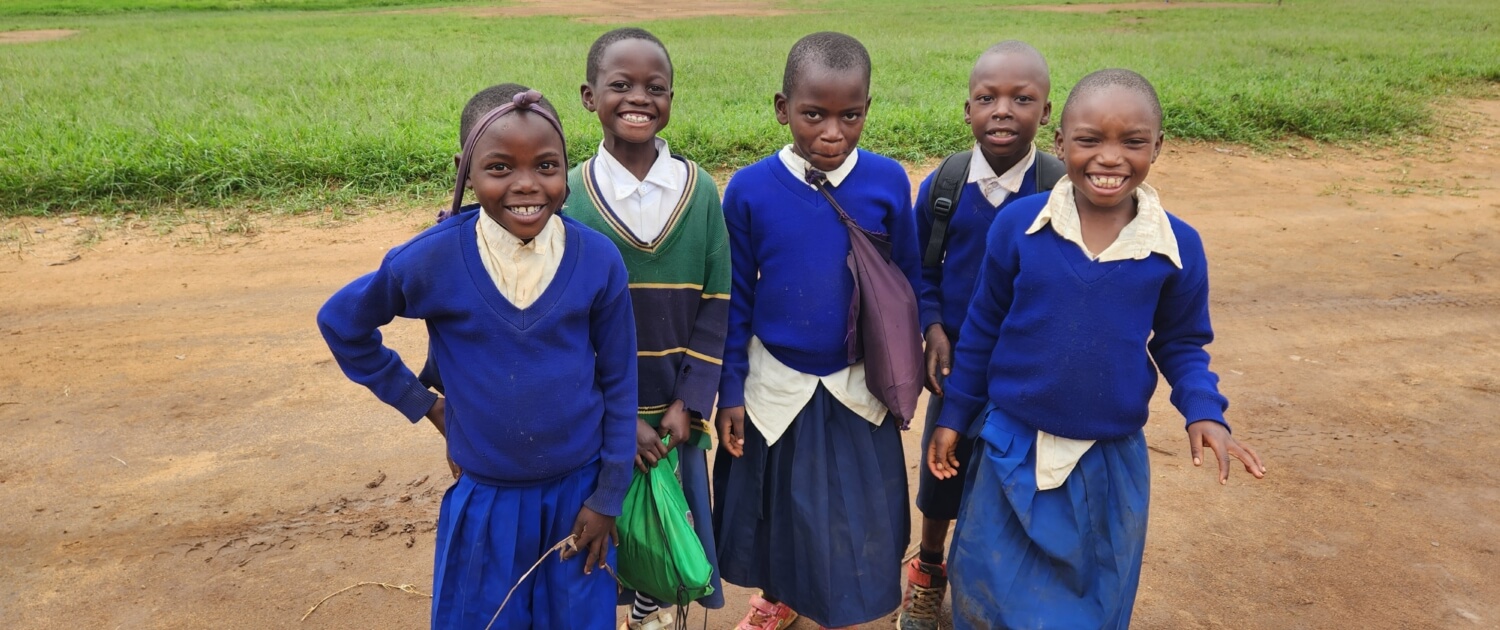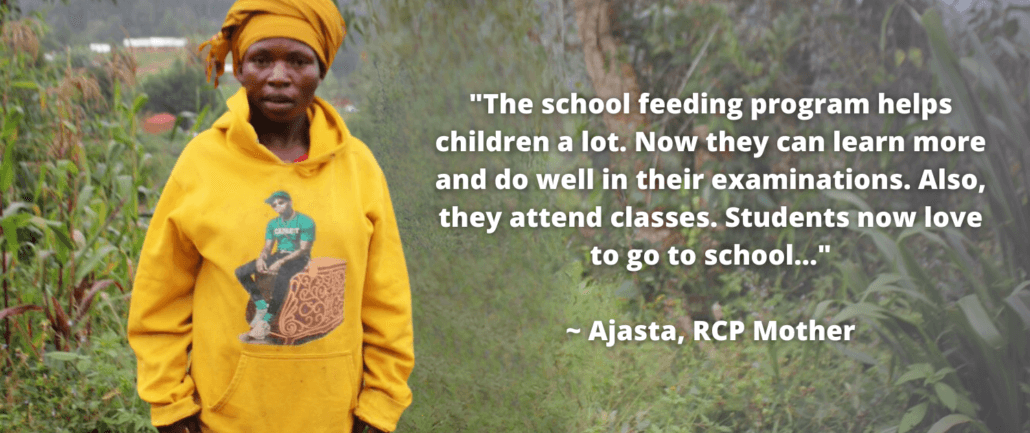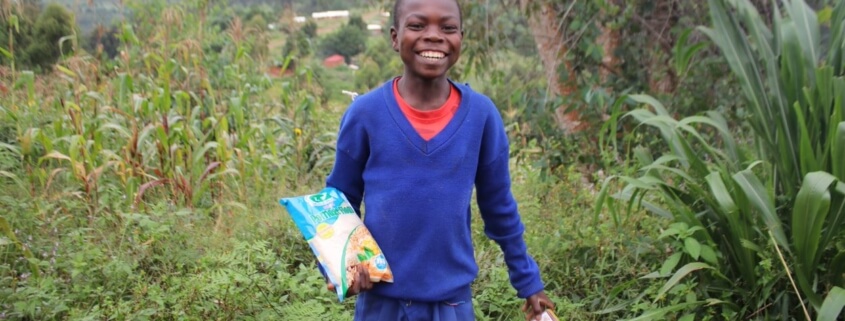Fueling the Future: The RCP Program’s School Feeding Project
Imagine you are back in school, spending 6 to 8 hours or more per day in class, working hard to learn new subjects. Now imagine doing it without breakfast to sustain you. This is a reality faced by many Tanzanian students, whose parents cannot afford to provide their children breakfast before going to school. More often than not, growing school children go to school hungry. Hungry children cannot learn! Students often have poor attendance and lack the attention span and the brain power to fully participate in school and reach their full potential.
By Emily Wood, Manager of International Operations
In partnership with Rise Against Hunger (RAH), Global Volunteers provides nutritious porridge and micronutrients to four primary schools in the RCP villages, most of which have students from kindergarten to standard 7 (8th grade in the U.S.). Global Volunteers cooks prepare the RAH porridge twice daily for over 1400 students. Every student has breakfast before school begins and a similar nutritious meal at the end of the school day. Fortunately, schools are able to provide ugali – a corn porridge – for lunch.
Fedha Ephas Biseko, the headmaster of Fikano Primary School in Ipalamwa, oversees nearly 600 students who receive RAH nutritious meals daily. He described the situation before Global Volunteers’ school feeding project started, “Before receiving meals, the biggest challenge for the school was that most of the students did not attend school. Additionally, when it was break time, students went home to find something to eat, [and] they did not return to school because they were supposed to walk very far to go home to find food.” He described an almost immediate change in his students after the school feeding program began: “Since Global Volunteers started giving meals to our school, we have really seen a lot of positive results…an increase in classroom attendance, an increase in classroom performance – the students increase their level of understanding – and students stay strong and have good energy. Students are now getting (at least) two meals per day, and this has had a positive impact. Now we have increased student performance and almost all the students come to school and attend classes because they don’t have to worry about food anymore.”

RCP mother Ajasta from Ipalamwa, whose children attend Fikano Primary School, described the impact of the school meals on local children stating, “The school feeding program helps children a lot. Now they can learn more and do well in their examinations. Also, they attend classes. Students now love to go to school…At first, the children did not have something to eat, so they were supposed to go home to eat. When they got home to find something to eat, some of them…were not coming back to school because they supposed to cook for themselves and they [did not] find food to either cook or eat.” She also mentioned that the school feedings have helped her as a parent, “The program is very good, and as parents, we are very glad that our children get meals at school because we don’t have to worry about meals…”

Although many people know that hunger and undernourishment can impact children’s physical development, it is equally detrimental to children’s cognitive development and their ability to learn, impacting their future earnings and economic productivity. Headmaster Biseko reports that he and the teachers at Fikano Primary School have learned that “…hunger affects children’s learning and physical development and can also affect the ability to focus and perform well in their studies. Hunger can also be the source of limitations of children’s futures.” Ajasta explained the importance of sufficient food and nutrients for students saying “…when children get something to eat it will be easy for them to concentrate more on their studies and attend [the] classroom. They will love school, and this will lead to high performance from many students.”




Leave a Reply
Want to join the discussion?Feel free to contribute!